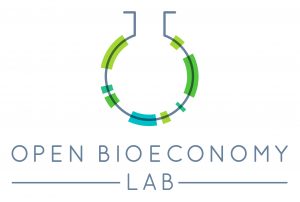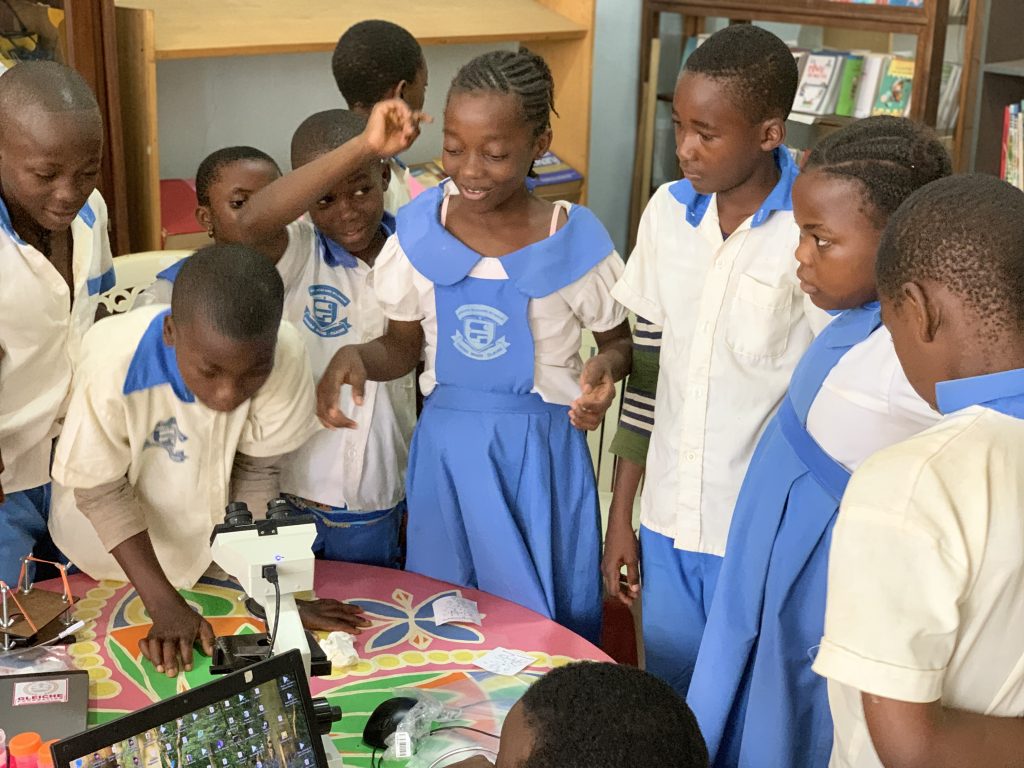The MboaLab operates as a node of the Open Bioeconomy Lab. The founder of the lab is a member of the African Open Science and Hardware network, fostering grassroots innovation through an OpenTech culture. The MboaLab promotes DIYbio and seeks to make biotech more accessible.
Series on Practical use of the Public Lab kit at the MboaLab
Engaging Kids in Environmental Issues using Open Science:
MboaLab as community Lab and makerspace always pays attention to the needs of local populations and strives to empower them with the tools they need to tackle their own problems. This vision is aligned with Public Lab efforts of democratizing science to address environmental issues that affect people. It is under these circumstances that we have received some equipment from the Public Lab, to investigate environmental issues related to our context.
The educational environment being a powerful vehicle for raising awareness and commitment to climate issues; MboLlab, therefore decided to organize a workshop on 19 and 20 November, for some primary schools in the village of Mefou-Assi (Yaoundé, Cameroon). During the workshop, students had the occasion to learn, mount and use: the Community Microscope, Lego Spectrometer as well as the Papercraft Spectrometer and the Foldable Minispectrometer.
The first day of the workshop was focused on microscopy, primary grade children and their teachers were given basic notions on its use. Immediately after the very interactive course, assembled in groups, participants started mounting their own community microscopes.
The interest that the community microscope arose in these students was so great that they decided to take action by tackling the problem of water quality. Children took us on a tour around their village and the water sources used to collect drinking water. Water samples from the various sources were collected and we all rushed back to the Lab to analyse it using the community microscope they built. We will never forget the astonishment on their faces when they saw moving shapes in live inside the water they use to drink and use.
It might seem strange and odd for many people but access to safe and sufficient drinking water under acceptable, accessible and affordable economic circumstances remains a major problem in Africa and Cameroon is a good example.
Day two was more focused on spectrometry, we had to use more specific and tailor-made examples to capture the attention of the children and explain the principles and application of this relatively difficult to understand science. In the end, children were very receptive and curious. Similarly to day one, we started with a brief course and proceeded with having every one mounting the Lego spectrometer. A competition was also organised to see which group will finish first and a record of twenty minutes was observed.
We then went on, bringing out scissors, glue, CDs and sharing the paper craft photometer and the foldable mini spectrometer, after two hours of intensive practical session, fully functional DIY spectrometers were in the hands of the children. The plan was to use these to analyse drinking water from the various sources by using the spectral work bench website to capture the spectral graph of collected water and compare it to the one of mineral water.
In conclusion the “Public Lab workshop” organised in MboaLab was very fruitful one for everyone. Children had the occasion to use DIY tools to observe and investigate an issue that matters a lot to them. It also raised new insights and prospects for future work for the public Lab, and from feedback we had from teacher participants and even parents, such events that trigger the creativity and involve local population are to be multiplied in the future.


